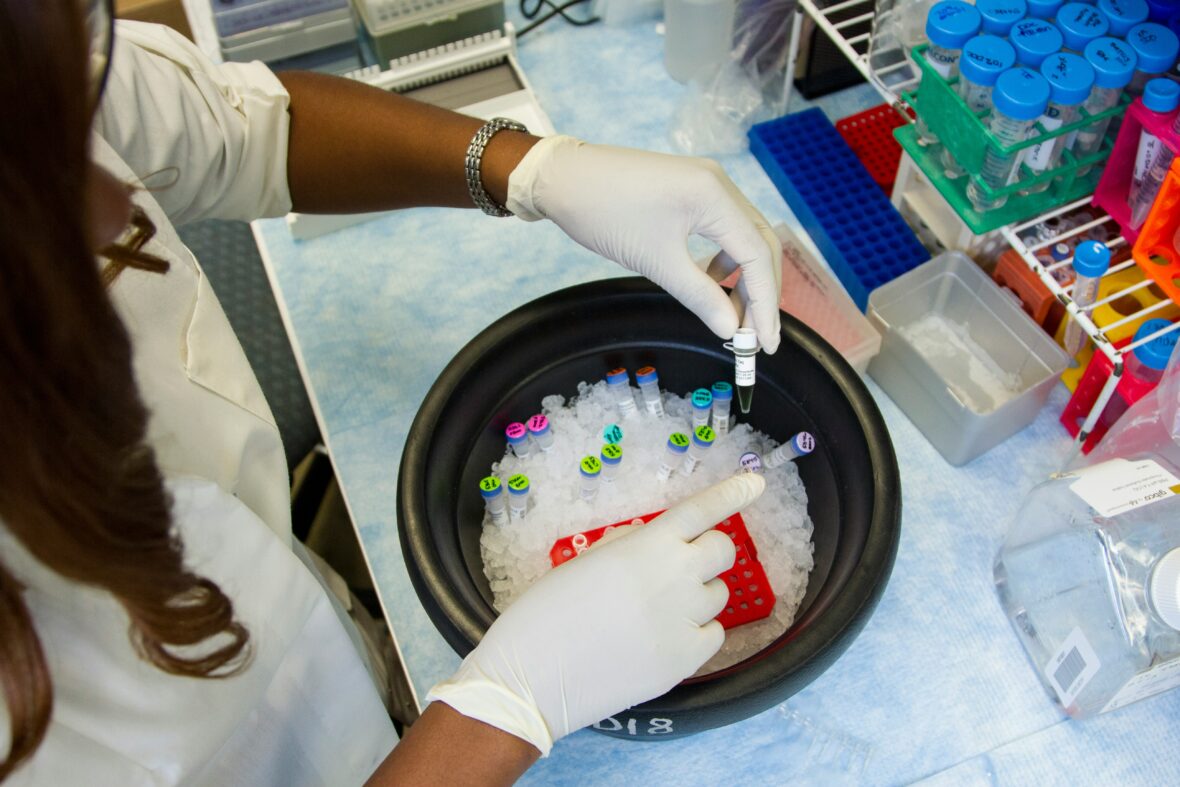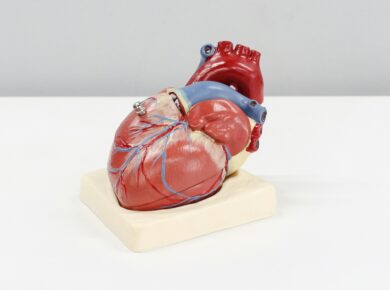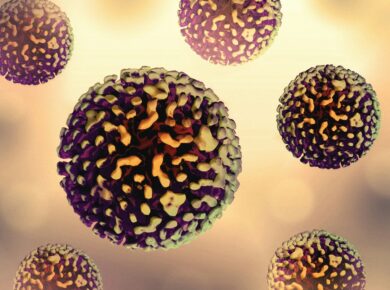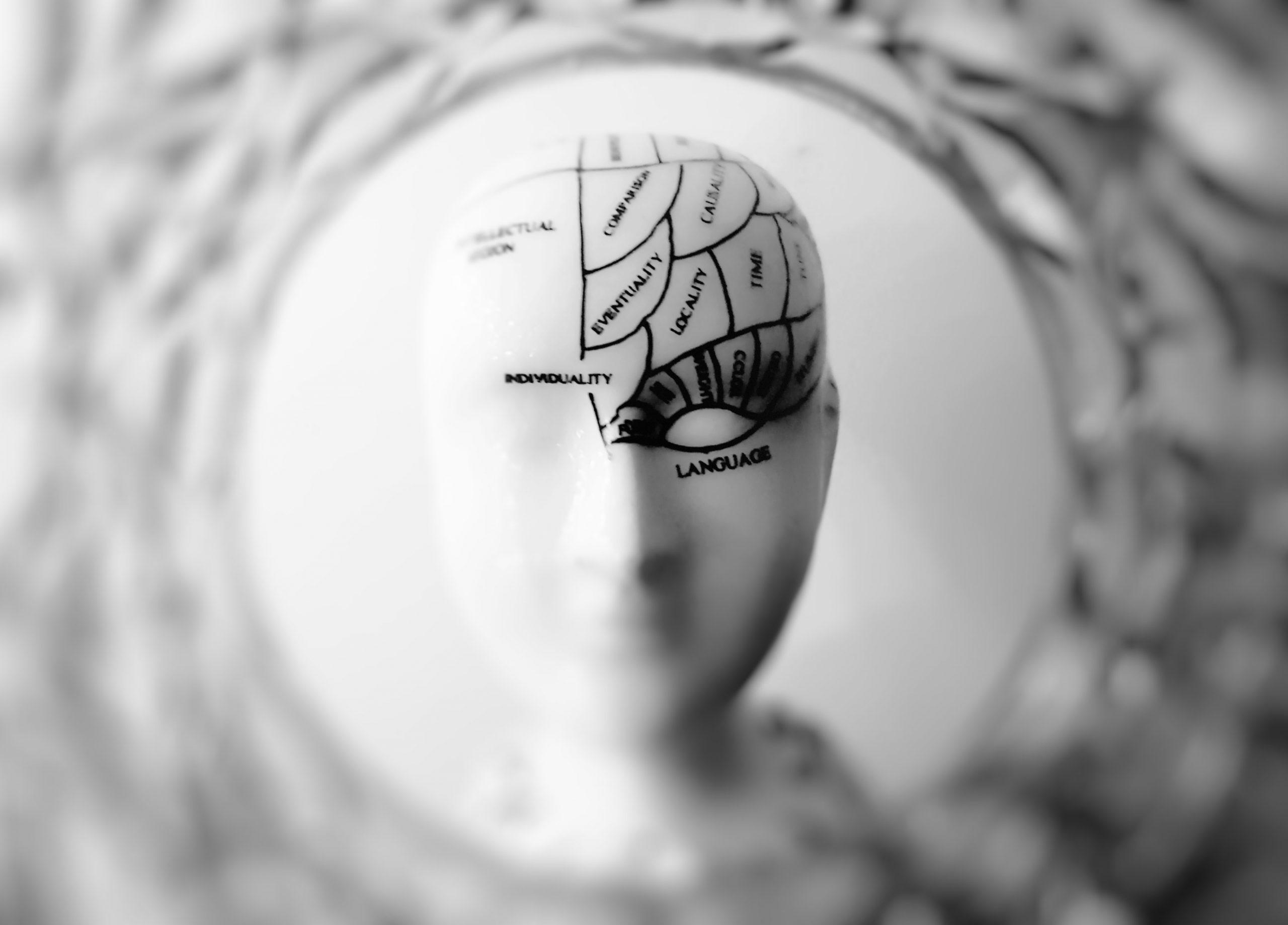Do you feel the passion for medicine as much as I do? If so, you’re in for a treat because today I’m going to explain some general tips and tricks on how to get the best out of it.
Alright, let’s discuss some new medical breakthroughs you should know about that are not only remarkable but also life-transforming.
Get some tea or coffee, make yourself comfortable, and welcome to the world of knowledge! This article discusses medical technology that is important to us.
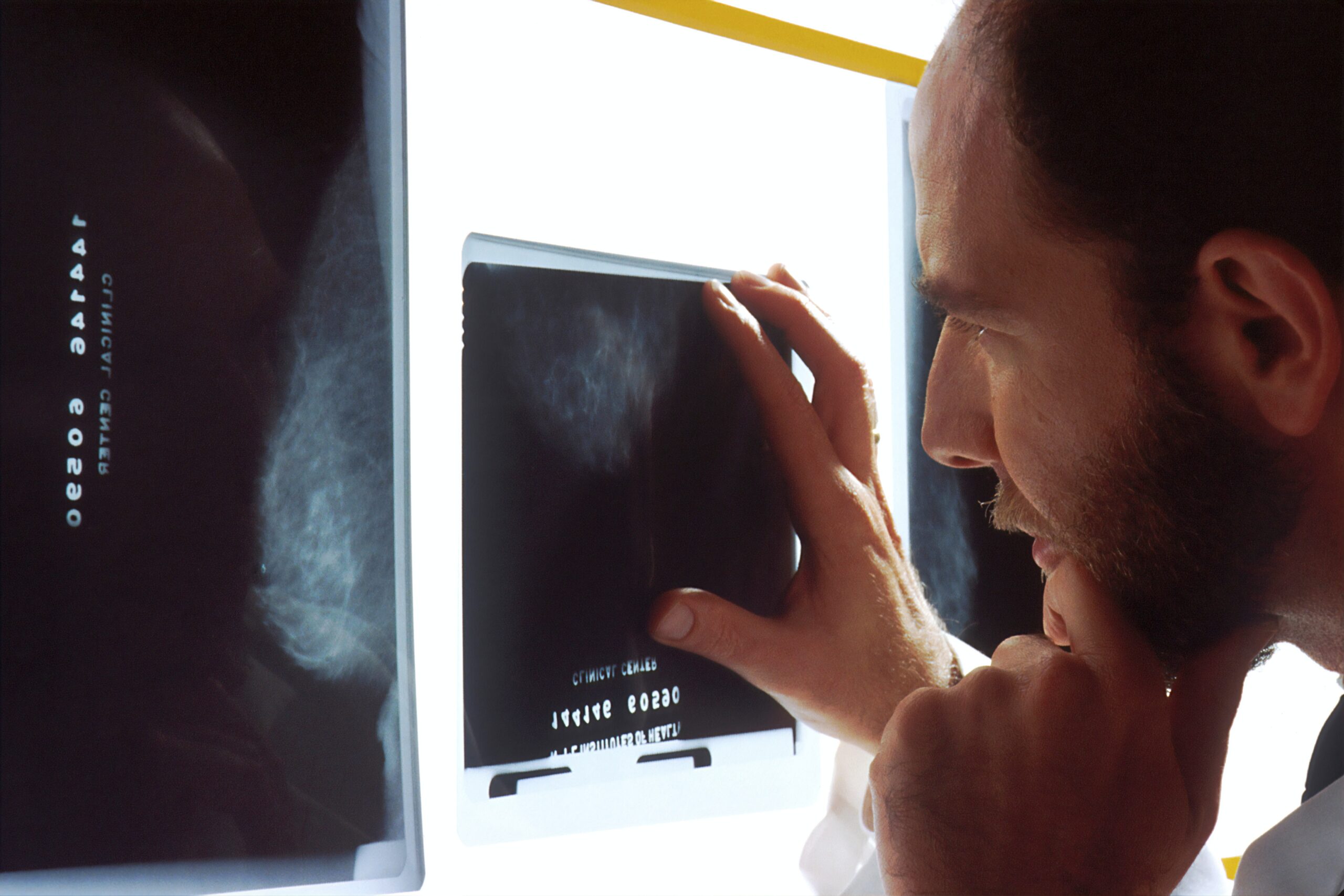
1. mRNA Technology: Beyond COVID-19
The Rise of mRNA Vaccines
Do you recall all the clamour about the COVID-19 vaccines? Well, guess what? The incredible mRNA that was used to create those vaccines is now being looked into for other illnesses! The idea of mRNA vaccines isn’t brand spanking new; researchers have been toying with this idea for a long time. Still, it primarily gained significant momentum during the pandemic as the key means to disseminate information. Medical technology is the key.
Thus, the question arises: How does it all boil down? In principle, mRNA (messenger RNA) is used by the body’s cells to follow instructions and make proteins.
For the COVID-19 vaccine, the mRNA provides instructions that encourage the cell to create a harmless spike protein that is part of the virus. This leads to the creation of an immune response.
This serves to introduce our immune system to the actual virus so that it may effectively fight the virus if we get infected.
Expanding Horizons: Other Applications
Today’s scientists are exploring the possibility of the use of mRNA in vaccines for flu, Zika virus, and cancer. Envision several types of vaccines where one is developed to fight some diseases efficiently.
Swiss Army knife for the Immune system; this made a lot of sense and was so humorous that I spent some additional time in the shower laughing.
For instance, Moderna is developing and planning to start trials for two or three different mRNA vaccines on the seasonal flu, and formally, the Pfizer vaccine is also in the process of testing the vaccines for flu breakouts with higher efficacy and faster response.
In the sphere of cancer, researchers are working on a specific mRNA that would be more focused on targeting cancerous cells only. This could, in turn, be directed to treatments that are much more effective compared to the current therapies with fewer side effects. We have to explore medical technology.
The Future of mRNA Technology
The possibilities are endless! That is why as we unraveled how mRNA works it future can change not only vaccines but treatments for a lot of diseases as well. The capability for fast growth leads to the conclusion that if there are new infectious diseases, the response system can be more efficient.
2. CRISPR and Gene Editing
What is CRISPR?
CRISPR, the gene-editing tool, is now on the table — isn’t it amazing? CRISPR is an acronym for Clustered regularly inserted short palindromic repeats. Saying that’s a mouthful isn’t quite accurate, but the idea is a revolutionary tool that is used by scientists to alter DNA with relative precision.
This tool has been borrowed from a natural defence system used by bacteria to fight viruses using CRISPR. Scientists came to understand that they could build on this system to insert and snip DNA into other species, including the human species.
Recent Advances in Gene Editing
In the past few years, researchers have managed to advance the approach of using CRISPR to cure genetic diseases. They have applied gene editing to patients with sickle cell disease and have reduced the symptoms and the suffering that accompany the disease.
It is noteworthy to state that a patient was successfully treated with CRISPR, and the mutation that gave rise to sickle cell anaemia was successfully corrected, and the outcome was nothing short of a miracle.
Before you wipe away the keyboard on your PC, wait a minute! Some of the diseases that scientists and medical practitioners are now looking at CRISPR to address include muscular dystrophy, cystic fibrosis, and even particular types of cancer.
Picture the possibility of a world in which you could erase issues genetically before they become an issue.
Ethical Considerations
Of course, where there is such power, there are certain duties that go along with it. That is why the ethical consequences of gene editing are vast. Issues such as genetically modified human beings, the owner of a person’s genes, and the consequences of changing human DNA are among the burning issues in scientific circles. As progress is made in this line of research, we must undertake critical discourses about what we are doing.
3. AI in Diagnostics: Looking into the future
How AI is Transforming Healthcare
Artificial intelligence is coming out of the background and into the foreground in healthcare! These include the diagnosis of diseases where doctors’ bot performance and precision are accelerated by AI.
Ponder over deep learning performing image analysis on medical scans quicker than an individual being able to blink their eyes. This means early diagnosis of major sicknesses like cancer, which could in some way be a lifesaver. It is the work of medical technology.
Deep learning models must be accustomed to the nature of medical data, hoping that they will be able to unsophisticated subtle patterns that could be unnoticed by human explorers. For example, radiology can point out tumours or any other disease on an X-ray or MRI scan almost without error.
Real-World Applications
But, in treating dermatological diseases, AI can be used effectively to attract and retain customers.
Diagnostic models using AI algorithms for skin lesions are available, and the performance of these algorithms is regularly as good as in the case of an experienced dermatologist. This could be a game changer, particularly in the regions where there is limited access to speciality care.
Also, the use of AI has occurred in the aspect of patient outcomes. With the help of huge amounts of data, these systems allow informing the healthcare providers about the patients who are more likely to experience complications, thus being more preventive.
AI In Medicine: Trends for the Future
It is for this reason that this research established that there is even more integration of AI technology in the future of healthcare. Perhaps you enter a clinic and your diagnosis is made even before you get seated!
The likelihood of being able to offer actual treatment according to the patient’s condition, as it is revealed through analytics, is revolutionary.
However, it remains critical to establish the point that, although such technologies make diagnostics better, the relevant task should be carried out with the help of AI, but not instead of it.
Thus, it can be concluded that the best results will be achieved through the cooperation of the technologies applied and the healthcare staff.
4. Personalised Medicine: Healthy Living; The Way You Want It
What is Personalised Medicine?
You can now forget about generalised treatments. There are increasing indications that the practice of medicine is moving towards the molecular and the individual, and your treatments can be designed for you alone based on the differences in your genes. Not only does this make treatments into being more effective, but it also reduces side effects.
The idea is simple: rather than prescribing a particular drug for all patients, he or she can take time and see things like your DNA and other aspects and come up with the right medication for you. This is very relevant in specialities such as oncology because the tumours themselves greatly differ in terms of genetics.
Recent Developments in Personalised Medicine
Perhaps the greatest of these is the genomic sequencing of the individual patient, now being widely marketed by molecular diagnostics companies.
In other words, a doctor will be able to recognise particular variations in patients’ DNA that could be making them sick. For instance, in the case of breast cancer treatment, knowledge of certain genetic indications allows for choosing the right therapy for the patient.
Furthermore, personalised medicine, which has not yet gained much popularity, focuses on pharmacogenomics as the branch that deals with the effect of genes on drug metabolism.
This implies that drugs can be given depending on the prognosis of the patients, hence overcoming trial and error in the treatment process.
The Future of Personalised Medicine
Yes, indeed, one can have high hopes for the development of a better and more effective personalised medicine. Since the concept of genetic testing is within the realm of the financially possible, it is quite probable that the general sentiment for more ppersonalisedmethodologies in this healthcare field is inevitable.
These could result in phenomenal development regarding chronic disease treatment and patients’ satisfaction, which, in turn, will favour saving human lives.
5. Telemedicine: Health care going mobile: health care information anywhere, anytime
The Rise of Telemedicine
Telemedicine is here to stay; the pandemic simply accelerated the focus on this tool in healthcare. Telemedicine implies that you do not have to leave your home to see a doctor, you can see them from your seat.
Telemedicine is healthcare, whether you live in the middle of nowhere or love your bed too much to leave it. Talk about a win-win! Essentially, you do not have to travel far to get the care you require.
Benefits of Telemedicine
Telemedicine offers several benefits. First, it eliminated the hindrances to approaching healthcare facilities for treatment.
Those patients who maybe cannot commute to a certain centre or clinic due to disability or are from rural areas can now be connected with doctors.
However, the use of telemedicine could also promote the enhancement of the delivery of healthcare services, hence improving efficiency.
Physicians have a greater ability tto care for patients in quantity and find themselves, justifiably or not, more capable in terms of seeing many patients a day, where follow-up visits can be accomplished more rapidly.
It can also promote the treatment of long-term conditions, as the patient can be supported via applications without having to attend physical hospital appointments.
The Future of Telemedicine
This means that as technology advances, we can now look forward to having telemedicine become more and more part of, and remain in, our healthcare system. Technologies such as personal monitoring gadgets will facilitate the monitoring patients’ health in real-time, making care more adequate.
However, some barriers must be noted and harnessed well; for instance, the availability of technology and internet connection to all the patients. It will remain important in the future to identify some of these gaps and come up with means and ways of closing them.
6. Mental Health Breakthroughs: New Hopes
A New Era for Mental Health Treatment
These are the hopeful words that I have always wanted to say, thank you, science, mental health is finally getting the attention it deserves. New techniques like psychedelic therapy have shown potential in diseases like PTS, and depression.
Studies on compounds such as psilocybin (the compound found in magic mushrooms, yes, you read that right) are showing that the compound holds great promise of rewiring one’s brain and enhancing his or her mental health.
The Science behind Psychedelic Therapy
Research has indicated that psychedelic therapy for depression results in major point drops on the symptoms scale in patients who have not benefited from other therapies.
Although the exact process by which this occurs is not very well understood, psychedelic substances are known to enhance the process of neuroplasticity, which can be translated as the brain’s capacity to reshape and form new neural connections.
There are testimonials claiming that the impulse to participate in clinical trials leads to such deep transformations of perception and intense emotions as hallucinations, phobia removal, or even gifts of tongues.
It’s a very interesting field that can potentially have a tremendous impact on treating and managing people’s psychological disorders.
The Future of Mental Health Treatments
The application of such treatments and others that are still under research aisquickly changing how mental health disorders are managed. The latter may result in the compilation of effective medication that is likely to experience minimal side effects; hence e,ffectively offering hope of relief to many individuals.
However, it should also be noted that with any new treatment, it is necessary to engage in caution. This means that more rigorous research analysis and independent ethical considerations will be paramount to traversing this exciting frontier.
7. Wearable Health Tech: Your health companion
The Rise of Wearable Technology
And finally, the last but not least is wearable technology. From wrist-worn fitness trackers that help track your heart rate to glucose monitoring gizmos that provide real-time data – these devices are making me the director of my health.
Smart electronics wearables have largely become a trend in recent years. They can monitor different aspects of a person’s health, such as movement, sleep, pulse, degree of stress, etc.
Real-World Applications
The use of wearable technology is another area that has captured much interest and this is in diabetics. CGM for diabetes is conventional devices that give real-time information about one’s glucose level and can be useful in insulin administration and choices made in daily life.
Also, fitness trackers motivate users to engage in physical exercises as well as to lead a healthy life. Thus, a host of individuals have argued that step counters, pulse, and similar indicators help encourage them to exercise.
The Future of Wearable Tech
Wearable devices, as technology develops, will only become more advanced in the futur,e as well as more integrated with modern people’s lives. Ponder over a smartwatch that can sense the initial signs of a heart attack r, notify you to take it easy if you are getting stressed out.
The incorporation of AI into wearable tech could also potentially result in the provision of highly customised information regarding the users’ health, enabling them to make the right decisions about their health based on their data.
Well, that is it for some of the interesting medical achievements of the recent past to help you decide on a future career in medicine. These innovations range from gene editing to AI diagnosis, and so on;, they are not anything close to science fiction; they are already sprouting!
What other wonders are still out there awaiting mankind, or what other prosperous coups are still waiting to be struck?
In the same respect, as we proceed to assimilate the improvements offered by these technologies, the discourse addressing the ethical predispositions and the processes of inclusion of such to the public should remain equally vibrant.
Looking forward to your input on this. Which of the inventions is the one that you are most looking forward to? Leave your comments here and let’s discuss! You can read more similar posts on our medicine and health page of the site.
